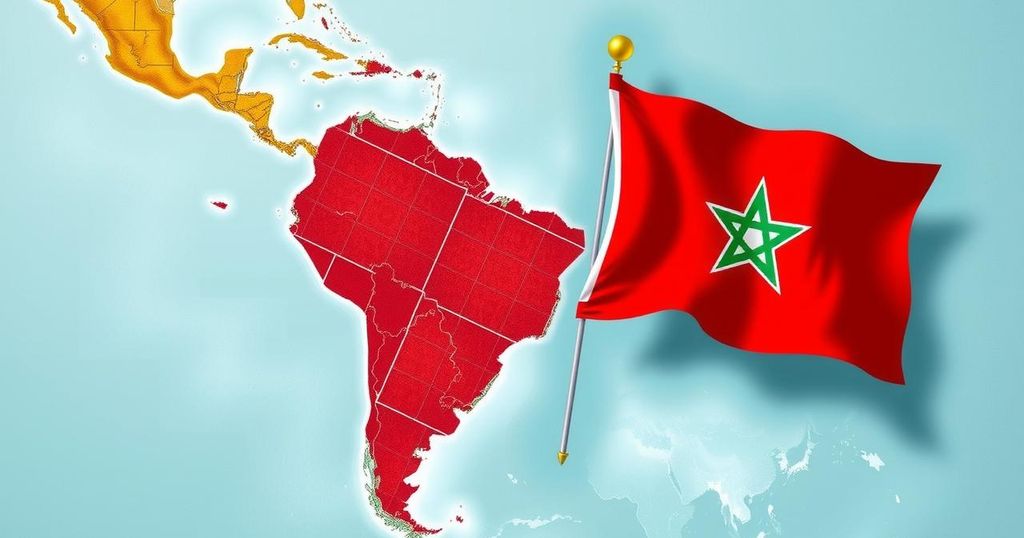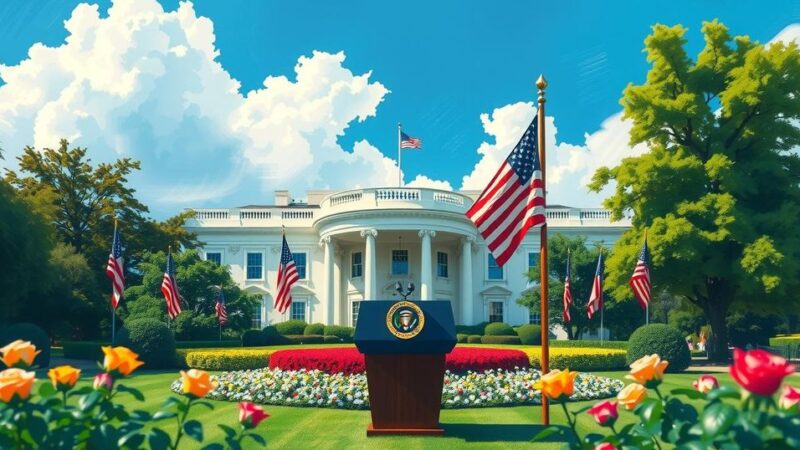In 2024, Latin American nations increasingly support Morocco’s position on the Sahara issue, abandoning backing for the Polisario Front. Diplomatic efforts led by King Mohammed VI fostered significant shifts, with countries like Ecuador and Panama withdrawing recognition of the separatists. Regional parliaments endorse Morocco’s territorial integrity, reflecting a broader acknowledgement of the legitimacy of the Moroccan cause.
The year 2024 marked a significant turning point for Latin American nations regarding the Moroccan Sahara conflict. Diplomatic endeavors spearheaded by King Mohammed VI have considerably bolstered support for Morocco’s territorial claims and diminished backing for separatist movements in the region. In his Green March anniversary speech, King Mohammed VI called for resolute efforts to uphold Morocco’s sovereignty, which has resonated across various Latin American countries ranging from Ecuador to Chile.
Countries such as Ecuador, Peru, Brazil, Paraguay, and Panama are increasingly aligning with Morocco’s autonomy proposal as a viable resolution to the fabricated Sahara dispute. Ecuador suspended its recognition of the self-declared “phantom republic” in October, and Panama followed suit by severing its ties with the separatist group in November. This diplomatic shift underscores a burgeoning recognition of the Polisario’s lack of legitimacy under international law.
Moreover, the Paraguayan parliament adopted a resolution endorsing Morocco’s territorial claims, urging the government to pursue a similar path. Brazil’s legislative body voiced its support for the autonomy initiative, with the Brazilian Foreign Minister commending Morocco’s earnest efforts to resolve the issue during his recent visit to Rabat. Chile’s Foreign Minister also expressed the country’s commitment to a sustainable and equitable political resolution congruent with Morocco’s initiative.
In parallel, Morocco’s outreach to Latin American nations has been enhanced by the establishment of an economic forum aimed at fostering strategic cooperation. The Moroccan cause has garnered further support from regional parliamentary assemblies, such as Mercosur and the Central American Parliament. Additionally, Moroccan initiatives have resonated within the realm of public opinion, aided by the influence of universities and media outlets, leading to a decline in traditional support for the Polisario that was historically bolstered by Algeria.
Through systematic and adept diplomatic engagements, Morocco is achieving persuasive victories on the international stage, signaling a diminishing support for separatist narratives amid evolving global perspectives.
The context of the article revolves around the ongoing territorial dispute over the Sahara region, primarily between Morocco and the separatist Polisario Front. Historically, several Latin American countries had recognized the Polisario Front, but recent diplomatic maneuvers by Morocco, particularly under King Mohammed VI’s leadership, have shifted perceptions in this region. This change highlights a broader trend towards recognizing Morocco’s authority and autonomy claims regarding the disputed territory.
In conclusion, the unanimous shift in support towards Morocco’s territorial claims among Latin American nations signifies a notable change in the geopolitical landscape of the Sahara conflict. As more countries like Ecuador, Panama, Paraguay, Brazil, and Chile affirm their backing for Morocco’s initiatives, the legitimacy of separatist movements faced increasing scrutiny and diminished credibility. Morocco’s adept diplomacy and strategic outreach appear to yield fruitful outcomes, paving the way for potential resolutions to the long-standing dispute.
Original Source: fesnews.media






